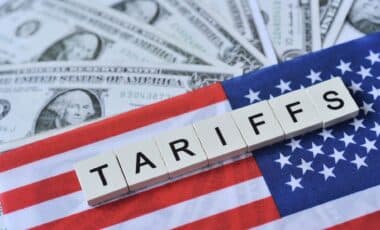A nationwide boycott of Walmart is set to take place from April 7 to April 14, 2025. Organized by The People’s Union USA, this initiative is part of a broader wave of consumer-driven activism aimed at challenging the practices of major corporations.
Newsweek reports that the boycott is generating significant attention, though the exact motivations behind the action remain focused on economic concerns rather than political issues. As the retail giant faces mounting pressure, the impact of this boycott on Walmart’s operations and consumer behavior will be closely watched in the coming days.
The Organizers Behind the Boycott
The People’s Union USA, a non-political movement focused on reclaiming control of the country’s economy and government, is leading the charge. Their mission statement clearly asserts :
“We are not a political party. We are not a protest. We are a movement of people, organizing to take back control of our economy, government and future of our country.“
The group’s goal is to unite people against what they see as corporate greed and political corruption.
This boycott is not just about skipping a store. As the People’s Union USA states :
“This isn’t just about skipping a store. It’s about conscious spending and it’s about discipline.”
This sentiment echoes throughout the group’s messaging, encouraging consumers to consider the broader impact of their spending decisions. They further add :
“No matter what side of the political fence you stand on, you should be able to agree on this corporate greed and political corruption are choking this country.”
Why This Boycott Matters
The boycott is taking place amidst a larger wave of economic and political tensions. Walmart, in particular, has been under scrutiny after losing $22 billion in market valuation in March. The company is also facing challenges as consumer confidence in retail brands wanes, and the economy shows signs of potential downturn.
Experts suggest that if consumers continue to reduce spending, it could further strain the retail sector.
The People’s Union USA has also been active in the past, organizing a 24-hour economic blackout in February. During that event, Walmart experienced a 5% drop in web traffic, though this mirrored broader consumer trends rather than a sustained boycott effect.
Their website post also advises people to consider alternatives :
“If you need something, look local, if you can’t find it local, wait … We are cutting the cord.”
The Focus of the Boycott
This boycott is not primarily about Walmart‘s stance on diversity, equity, and inclusion (DEI), even though the company has been involved in the rollback of DEI programs after the election of Donald Trump. Instead, it focuses on consumer habits and the broader issue of corporate influence in politics and the economy.
A social media user on X (formerly Twitter) shared their experience with a similar economic boycott, stating :
“I have been doing the Amazon economic boycott for a week, which ended today. I am stunned by how much I depended on Amazon … On to the next boycott: Nestle and Walmart.“
This reflects the growing trend of consumers seeking to challenge corporate giants through economic actions.









